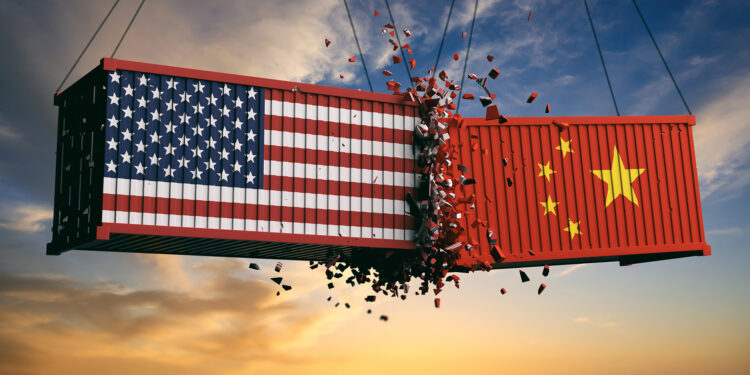Bloomberg reported in a report published on Friday that the Chinese government announced that it was seriously studying the “repeated offers” presented by senior US officials to start commercial negotiations, but stressed that any negotiations could not begin before Washington canceled unilateral customs duties.
“If the United States does not correct its unilateral actions on fees, this means that it completely lacks sincere intention, and it will exacerbate the erosion of mutual trust between the two parties.”
The damage indicators are increasing in American companies
This Chinese position comes at a time when the increasing cost of the trade war on American companies has begun to appear. Apple has announced disappointing quarterly sales in China, and also warned that the new fees will increase its costs during this quarter, for its part, Amazon stated that it is preparing for a “more difficult” business climate in the coming months.
The effects of companies operating in the Chinese market not only stopped, but also extended to American companies trying to enhance their manufacturing capabilities locally, as they are subjected to obstacles due to the fees imposed on machinery and equipment manufactured in China. More than 180 companies – including Ford and Tsla – have provided more than 1,100 individual exemption requests in this context.
The American consumer in the pressure circle
The American consumer is expected to feel more pressure with new fees on low -value Chinese goods into effect today. This may be a major blow to independent sellers online, who depend on Chinese imports at low prices.
US President Donald Trump commented on these transformations, saying: “Children may find themselves in front of an option to buy only two dolls instead of 30 dolls as before,” in a sarcastic reference to reducing diversity on store shelves as a result of customs duties.
Decreased in the Asian manufacturing sector
The indicators of the purchasing managers issued by the Standard & Poor’s Global Foundation showed that the manufacturing activity declined in most Asian countries during April, where companies suffered from poor demand and the slowdown of new orders due to the state of commercial uncertainty. A sharp decrease in indicators was recorded for both South Korea and Taiwan.
In a separate context, South Korea set on June 3, a date for the presidential elections.
Tokyo waved the American Treasury bond paper
On the Japanese side, the main commercial negotiator, Riosi Akazawa, said that his country aims to reach a trade agreement with the United States in June, after a round of talks he described as “frank and open”, despite the need for more practical details.
Japanese Finance Minister Katsonobo Kato hinted that his country’s huge possessions of US treasury bonds – the largest in the world – as a negotiating card in the talks.
Internal reduction
While economic pressure continues, President Trump is preparing to present a preliminary proposal for the 2026 budget, which includes a reduction in internal spending to $ 557 billion (a decrease of 163 billion from the levels of this year), compared to increasing defense spending to $ 1.01 trillion, an increase of 13%, according to statements of US administration officials.



